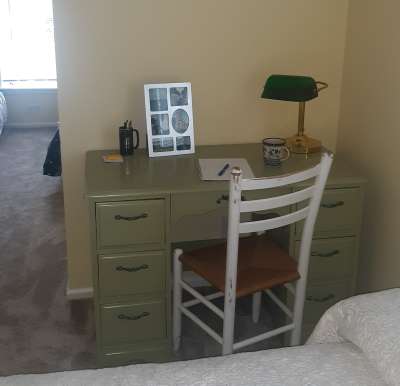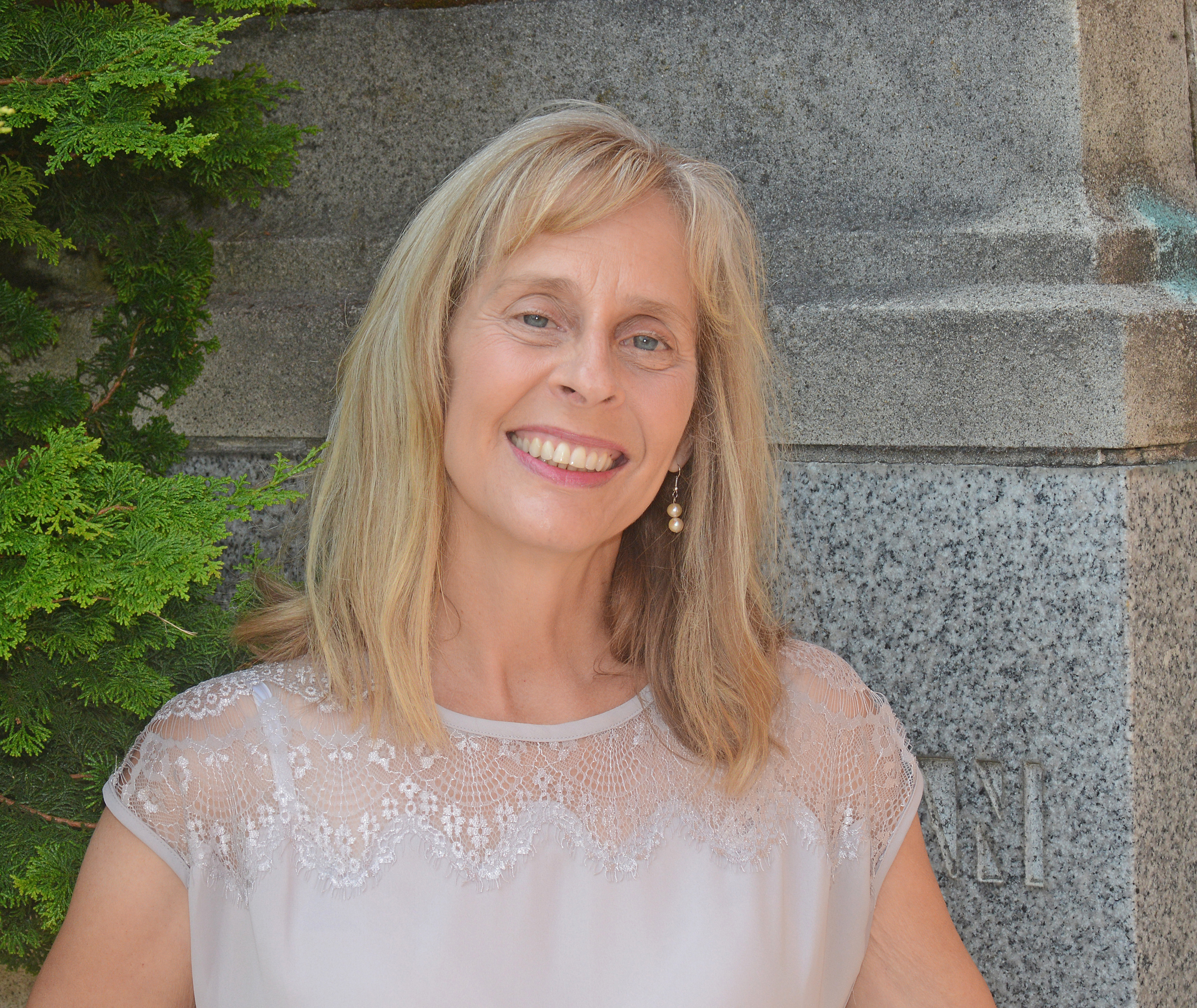It’s marvelous what a good literary friendship can do.
A few years back, when I was fiction editor for a small literary magazine, I accepted an excellent short story submission titled “The Man Who Wore Violets.” The piece was closely based on the extradition of Nazi war criminal Klaus Barbie, and I felt it was one of the most intriguing stories we published.
Since I was writing fiction set in wartime Europe, I was also intrigued to get to know the author, Roberta Hartling Gates. (Check out her website here.) Roberta and I began emailing each other, then phoning each other. Writing wasn’t all we had in common. We had both taught high school, had both raised sons, were both Presbyterians, and we shared so much that Roberta commented, “Connie, it’s like we could be long-lost sisters.”
Very true. Though she lives in Chicago and I’m in the Pacific Northwest, we eventually were able to meet in person. I treasure our warm friendship and the way we’ve supported each other’s writing.
This past year we both faced formidable challenges in our work. I threw myself into finally wrapping up the first draft of a novel, only to find that the ungainly thing had grown to 800 pages and had to be cut down by half. Roberta, in her novel project, faced one difficult decision after another. In particular, the massive amount of research she’d done on Vichy France was starting to drag down her story, and she was having to juggle things in order to keep her plot moving. We both felt overwhelmed. As we commiserated, Roberta said she wished we could enjoy a writing retreat together—but covid was going on.
So we made our own writing retreat. We didn’t have a cabin in the woods, a seaside resort or some such getaway. What we had was the upper floor of my house, and it actually worked beautifully.
Roberta flew out here in late September. I set up our guest room as a writing spot for her, with a desk, paper and supplies, and plenty of coffee. As Roberta worked in her space, away from the distractions and obligations of her usual daily life, I worked at my desk in the next room over. It was good motivation for both of us, knowing that a friend was writing nearby. Maybe it was a bit like runners who train together rather than alone. It helped our endurance, and it was a good antidote to the loneliness of our solitary work.
Roberta was here for four intense, joyful days. One morning we had coffee with my friend Ruth Tiger, who also writes historical fiction, and the camaraderie was wonderful. That evening Roberta treated my husband Rory and me to dinner on the waterfront. She loved the view of Puget Sound. In general, our schedule went like this: 1. Write in the morning. 2. Break for lunch, and talk about writing. 3. Write in the afternoon. 4. Have dinner with Rory (who had cooked the meal, bless him). 5. Spend the evening talking about books, talking about our projects, throwing ideas around, and venting frustrations.
On Roberta’s last night here, the two of us went to my favorite wine spot in Tacoma, Old Town Wine Skins. Earlier in the day we’d read a few pages of each other’s writing, and we spent our time at Wine Skins exchanging helpful feedback and finding new possibilities. Good wine, good friendship, and the work we love . . . that evening is now a special memory for us both.
Most significantly, Roberta has said that our writing retreat made her excited about her project again. This is a wonderful result, that an excellent writer has regained passion for her work. I look forward to seeing her fine novel in print someday.
To any of you writers out there who may need a boost: think about joining a friend (or several) over a few days for writing and creative conversation. You don’t need a perfect setting, just some relative quiet and a willingness to share. Beautiful things can happen.




Hi! It’s Roberta here, and I just want to validate everything Connie said! It’s very easy, working at home by yourself, to feel that trying to write anything is an exercise in futility. No agent, publisher, editor, or anyone else anywhere is ever going to be interested in what you’re writing. But when you’re working side by side with a committed writer like Connie, you forget about the obstacles and just get down to work!
You’re so right, Roberta! This was an invigorating and productive time, and I’m glad we were able to share it.
What a great story, Connie! And all the more so because it’s true, and it inspires the rest of us to support someone else in a shared creative effort.
Thanks for writing, Gretchen. The shared creativity was a real gift.
It sounds like a perfect mini-retreat, and I know you both felt great about it. We all could use this kind of support, as others have said, it is a lonely business, writing fiction. Thanks for sharing!
So true, Ruth. The mutual support was wonderful, and Roberta and I really liked including you in the time together.
Hi Connie, This was wonderful to read. Although I am not a professional write, I have had many occasions to write in my teaching and volunteer career. It IS hard to write, so I commend both of you for the wonderful 4 day exercise and Connie’s ingenious plan. Eva Szabo/Cleveland, Ohio
Thanks, Eva! It’s so good to hear from you. I often think fondly of you and the others I met at the Cleveland museum.